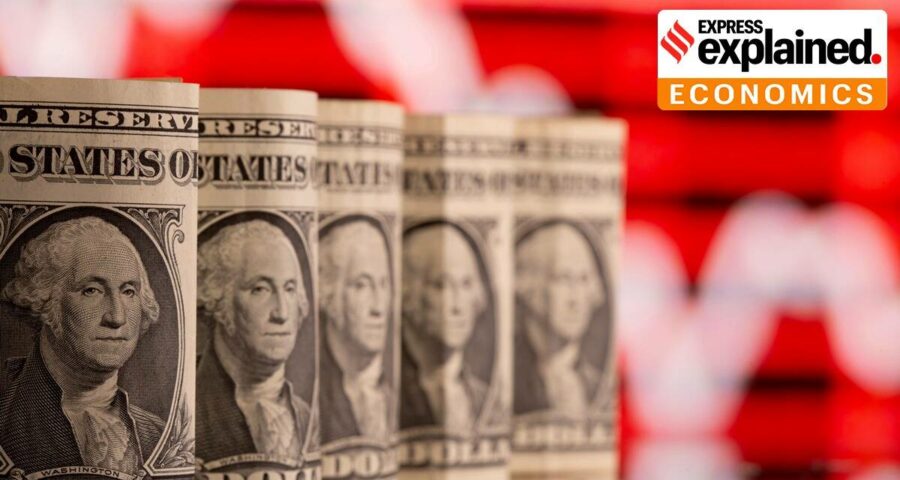According to data from SPAC Insider, of the 755 IPOs by blank-cheque companies since 2009, 248 happened in 2020 and 281 in 2021, so far. The gross proceeds raised by SPACs in 2020 amounted to over $83 billion, while for 2021 the number stands at $91.65 billion as of now.
Earlier this month, the US Securities and Exchange Commission (SEC) issued an investor alert, which was the first warning of sorts, when it came to SPACs, or special purpose acquisition companies. The securities watchdog cautioned investors “not to make investment decisions related to SPACs based solely on celebrity involvement”. Even as the concept of SPAC has existed for nearly a decade now and several investors and company promoters have used this route to take their investments public, the vehicle has gained momentum just last year, making 2020 a record year for SPAC deals — a record that has already been broken by 2021.
Newsletter | Click to get the day’s best explainers in your inbox
The vehicle and its attraction
An SPAC, or a blank-cheque company, is an entity specifically set up with the objective of acquiring a firm in a particular sector. The aim of this SPAC is to raise money in an initial public offering (IPO), and at this point in time, it does not have any operations or revenues. Once the money is raised from the public, it is kept in an escrow account, which can be accessed while making the acquisition. If the acquisition is not made within two years of the IPO, the SPAC is delisted and the money is returned to the investors.
According to the SEC, certain market participants believe that, through an SPAC transaction, a private company can become a publicly-traded company “with more certainty as to pricing and control over deal terms as compared to traditional IPOs”. On the other hand, a key factor that makes SPACs attractive to investors despite them essentially being shell companies, are the people sponsoring the blank-cheque company. Globally, prominent names such as former NBA star Shaquille O’Neal, tennis star Serena Williams, former TikTok CEO Kevin Mayer, Dell Technologies founder and CEO Michael Dell, billionaire and venture capitalist Vinod Khosla etc. have participated in SPACs.
The recent acceleration and where India stands
According to data sourced from SPAC Insider, a portal that maintains a record of SPAC deals, of the 755 such IPOs by blank-cheque companies since 2009, 248 happened in 2020 and 281 in 2021, so far. The gross proceeds raised by SPACs in 2020 amounted to over $83 billion, while for 2021 the number stands at $91.65 billion as of now. However, in addition to the 281 SPACs that are either searching for a target company or have announced an acquisition, there are 227 more that have filed for IPOs.
In India, renewable energy producer ReNew Power last month announced an agreement to merge with RMG Acquisition Corp II, a blank-cheque company, in what became the first involving an Indian company during the latest boom in SPAC deals. The merger of ReNew Power with RMG Acquisition will result in the former’s listing on Nasdaq and gross cash proceeds of around $1.2 billion.
In addition to this, online grocery platform Grofers is also reportedly in advanced stages of exploring a SPAC deal. According to news reports, venture capital firms Elevation Capital and Think Investments are expected to launch a SPAC focused on Indian technology companies seeking to list in America.
Furthermore, while India has not taken an official regulatory stand on allowing the listing of SPACs here, the Security and Exchanges Board of India (SEBI) has reportedly formed a group of experts to study the feasibility of bringing SPACs under the regulatory ambit. However, the Indian regulatory framework does not allow the creation of these blank cheque companies as yet. For example, the Companies Act 2013 stipulates that the Registrar of Companies can strike off a company if it does not commence operations within a year of incorporation.
The risk factors
For SPACs, the biggest opportunity is also the biggest threat — depending on from which side it is looked at. As per the 2021 statistics, out of the 281 SPAC listings that have happened, only two have announced their targets. Also, out of the 248 SPAC listings in 2020, 138 are still searching for targets. The boom in investor firms going for SPACs and then looking for target companies have tilted the scales in favour of investee firms. This has the potential, theoretically, to limit returns for retail investors post-merger. Also, even as the SPACs are mandated to return money to their investors in the event no merger is made within two years, fineprint of several SPAC prospectuses shows that certain clauses could potentially prevent investors from getting their monies back. Historically, though, this has not happened yet.
📣 JOIN NOW 📣: The Express Explained Telegram Channel
Fault with the stars
The SEC has noted that celebrities “like anyone else, can be lured into participating in a risky investment or may be better able to sustain the risk of loss”. “Celebrities, from movie stars to professional athletes, can be found on TV, radio, and social media endorsing a wide variety of products and services. Sometimes they are even involved in investment opportunities such as special purpose acquisition companies, or SPACs, as sponsors or investors. Those celebrities may even be well-known professional investors. However, celebrity involvement in a SPAC does not mean that the investment in a particular SPAC or SPACs generally is appropriate for all investors…It is never a good idea to invest in a SPAC just because someone famous sponsors or invests in it or says it is a good investment.”
Source: Read Full Article


